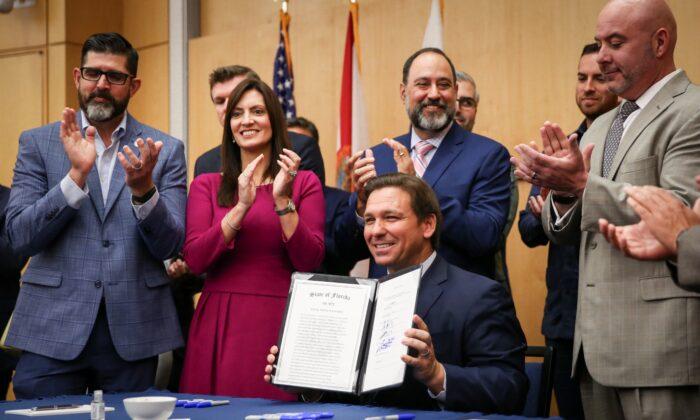A senior Washington diplomat said on Dec. 16 that the United States won’t accept a year-end deadline set unilaterally by North Korea to make concessions in nuclear talks. The official also urged Pyongyang to return to the negotiating table.
Stephen Biegun, U.S. special envoy for North Korea, said Washington is open to talks on denuclearization. Biegun was in Seoul for discussions with South Korean officials when he made the remarks dismissing Pyongyang’s deadline, which the country had repeatedly brought up.
“On this point, let me be absolutely clear: The United States does not have a deadline,” Biegun told reporters. “We are fully aware of the strong potential for North Korea to conduct a major provocation in the days ahead. To say the least, such an action will be most unhelpful in achieving lasting peace on the Korean Peninsula.”
Biegun said it’s time for the two countries to get back to negotiating talks, which had stalled. The White House didn’t immediately respond to a request for comment from The Epoch Times.
“Let me speak directly to our counterparts in North Korea: It is time for us to do our jobs. Let’s get this done. We are here. And you know how to reach us,” Biegun told reporters.
“The North is playing the game of, ‘Let’s see if we can beat up the United States and get concessions,’ because that is what they do,” he said. “They are like a bully or kind of a criminal gang that extorts people. We [the United States] are just not playing the extortion game anymore.”
Huessy said the United States has historically been willing to give the communist regime some form of concessions, such as shipments of oil or food, but that’s changed under the current leadership.
“This administration has said no to all of that with one exception: We did change the nature of some of our military exercises with South Korea,” Huessy said. “What the president is trying to do is to change the story, change the narrative.”
Biegun later held separate meetings with South Korean President Moon Jae-in and Unification Minister Kim Yeon-Chul, Seoul’s point man on North Korea. Moon’s office stated that during his visit to the presidential Blue House, Biegun said the Trump administration wouldn’t give up on seeking diplomatic progress with North Korea, but it didn’t elaborate further.
North Korea’s military chief, Pak Jong Chon, asserted Dec. 15 that the North has built up “tremendous power,” and findings from the recent tests would be used to develop new weapons to allow the regime to “definitely and reliably” counter U.S. nuclear threats.
Trump’s comments followed remarks by North Korea’s ambassador to the United Nations, who said on Dec. 7 that denuclearization is now off the negotiating table with the United States, and lengthy talks with Washington aren’t needed.





